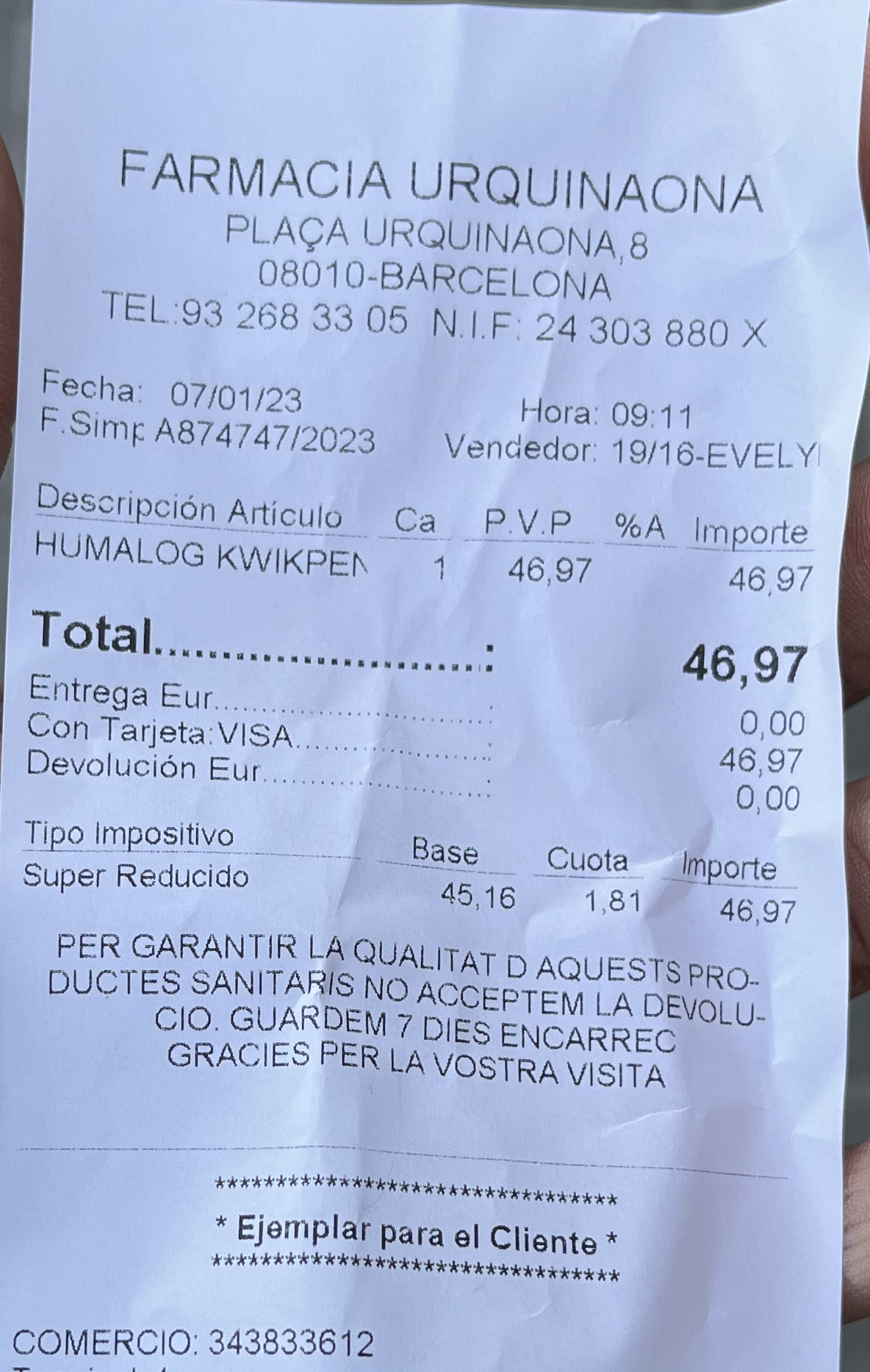I describe my insulin emergency experience abroad and what I learned from it.
As a seasoned type 1 diabetic with a fondness for experimentation I have multiple techniques to deal with situations such as low quantity of insulin or decreased efficacy of insulin or even complete lack of insulin for short periods. But managing without insulin for over a week is unfamiliar territory. The only way I know to deal with it is a combination of strict keto dieting, fasting and exercise. And, that was not how I envisioned my week long vacation in Spain with my family.
On the very first morning of the vacation I realized the bolus insulin I had carefully brought in an insulated and cooled bottle was completely ineffective. A typical meal of eggs, coffee and yoghurt tripled my blood glucose from 85 to 260 steadily in a little over half hour and stayed there adamantly. It became clear my insulin was as dead as a doornail. Puzzled and anxious I checked my new insulin travel kit. Turns out I needed to completely freeze the coolant before use, which I had not done.
Of stoic personality, few things can affect my emotions strongly. Insulin is one among them. Once I realized what had happened I choked up with fear (about the upcoming week), shame (about my mistake) and helplessness (over the prospect of getting insulin in short notice in a foreign country). This drove me to tears. I was conditioned to feel this way by my experiences obtaining insulin in America, where you have to jump through procedural hoops, deal with multiple intermediaries on a regular basis to get your life saving medication at absurdly high prices. I hated having to prove over and over that I needed this medication, an increase in dosage or additional supply for upcoming travel. Refreshing an expired prescription to get refills for medicine is the most painful thing I do regularly, including my ice baths.
But Spain was different. Refreshingly and radically different. After just a few minutes on Google I learned that it was possible to get and fill a prescription easily with the help of a local endocrinologist. Since it was the first day of a long weekend in Spain, I wanted to go to a pharmacy to see if they’d honor my existing prescription from America. There were pharmacies in every other block. I went to the one on my block. I used Google Translate to convey that my insulin got hot during travel and doesn’t work anymore. The pharmacist took my insulin pen, searched the system for “humalog”, turned to me and said “I can give you the exact same medicine, but you’ll have to pay the entire cost by yourself.”
A quick look at her computer screen ended the palpable suspense. It was only £47, or 58 USD at this time. I let out a chuckle of relief and quickly gave her my card before she could change her mind. With my new insulin in hand I said namaste to express my deep gratitude and left the store in utter disbelief. All I had to do was show my expired insulin and ask for help. There was no need to involve doctors, prescriptions, insurance companies or archaic rules. It was simply one human helping another in distress. This was a profound experience for me. I had spent two difficult symptomatic years before the American medical system diagnosed me as T1D. Those were years spent wrestling with insurance companies over payments, fighting doctors who made incorrect diagnoses and convincing labs I was eligible for tests. Coming from all that, this was a breath of fresh air. It got me thinking about the lack of humanity and decency in American healthcare.
That exact medicine (brand and quantity) costs 535 USD at Costco with the Costco member discount. That is 9.2X more expensive! RIDICULOUS. This is capitalism at it’s most ugly and dangerous. The American insulin idiocracy has to be disturbed. There is significant human cost tied to this greed, inefficiency and dated regulations. Working in the tech sector I have some of the best medical insurance and cushy financial resources. Even still I feel bruised. I can only imagine how battered the less advantaged feel. Nobody with a chronic illness such as this should be made to feel like they are walking on a tight rope. Everyone is allowed a screw up once in a while.
In a world where Spanish diabetics get their insulin for free or deeply subsidized by the government, the average American has to pay half their paycheck to afford my monthly insulin supply (median American income is $54k/y). Insulin is not a luxury. Insulin is not proprietary. The recent legislative efforts are a step in the right direction. But there is a lot of ground to cover. It is time we figure this out. I yearn to be part of the solution. As a start I am framing and hanging up the bill of sale from the Spanish pharmacia so I can be reminded of what is possible.

